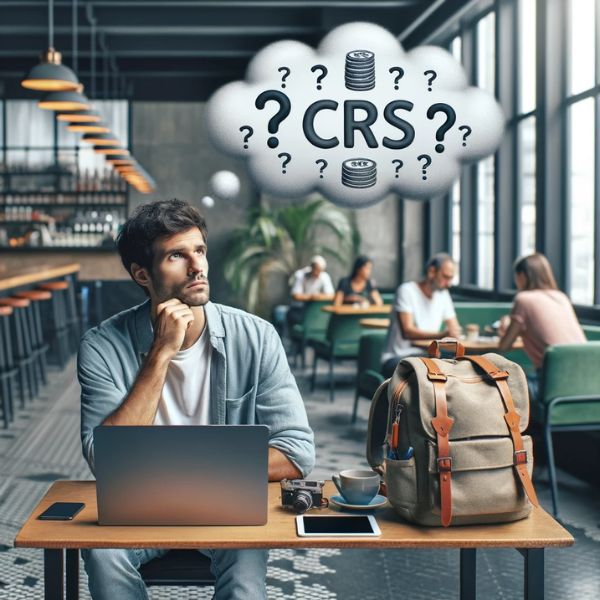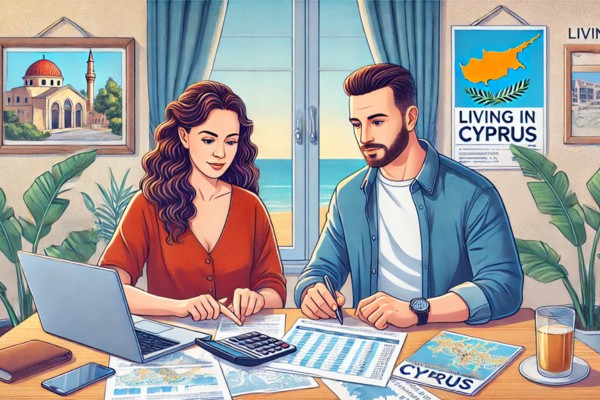Are you looking for countries to open bank accounts without information exchange? If the answer is yes, it’s important to thoroughly research the available options, and we are here to assist you.
In this article, we will provide information on the best countries where you can take advantage of all the benefits that offshore banking has to offer in this new year. We consider factors such as security, privacy, taxation, and ease of account opening. Of course, it is crucial that these countries do not exchange your information.

Indice del artículo
What is offshore banking, and why is it important?
You may have heard this term over and over again, but perhaps you didn’t pay enough attention and overlooked a very useful tool when it comes to protecting your assets or improving the tax performance of your company.
Offshore banking is a type of banking conducted outside the account holder’s country of residence. For example, if your residence is in Spain, an offshore account for you would be one in the United Kingdom.
Offshore banking can have several advantages, such as protecting assets from the excessive taxation in your home country or gaining access to financial products and services not available in your country of residence.
If your goal for 2024 is to improve the tax efficiency of your income, keep reading, as we have useful information for you.
Why open an offshore bank account instead of a regular one? There are several reasons why a person might want to open an offshore account.
Celebrities, millionaires, and why not you?
Many individuals are turning to this tool, increasing the demand for those wanting to enjoy its benefits. Among the most common reasons why more and more people are seeking to enjoy an account in the best offshore banks, we have:
- Protecting assets from taxation: Offshore banking is the best way to avoid high taxes on income or assets resulting from your effort and work.
- Ensuring greater privacy: Offshore banks often offer a higher degree of privacy than traditional banks, especially when the jurisdiction is not part of the CRS (Common Reporting Standard).
- Accessing financial products and services not available in the person’s country of residence, as some countries offer financial products and services that are not available in the countries where you reside.
Now, knowing what offshore banking is and some of its benefits, let’s discuss the factors to consider when choosing a country to embark on your adventure in an offshore jurisdiction.

There are several factors to consider when choosing a country to fully enjoy the benefits offered by offshore banking. Among the most important ones, we can mention:
- Security: It is crucial to ensure that the chosen country has a secure and stable financial system with a robust political system that provides long-term security.
- Privacy: You must ensure that the chosen country offers a high level of privacy for offshore account holders, and, of course, that the list of banks in the jurisdiction includes AAA-rated banks. Another important consideration is whether the country adheres to CRS regulations, as choosing a jurisdiction not bound by this system provides greater privacy for your banking data.
- Taxation: Consider the tax policies of the chosen country to maximize the benefits of an offshore account and minimize taxes based on your activities and those of your company. Our assistance will be essential in this process.
Ease of account opening: It is also important to ensure that the chosen country offers a straightforward process for opening offshore accounts with a simple KYC (Know Your Customer) procedure and the possibility of opening accounts remotely.
What is the Common Reporting Standard (CRS) and how does it affect you?
At this point in the article, you should already know more about offshore banking and its benefits, but you may be wondering what we mean when we mention the “CRS” system.
In the past, when you were looking to open a bank account, you were only asked two questions: “Which country are you a citizen of, and where do you live?” But those times are behind us. Now, most countries have joined a system that helps tax authorities automatically collect information from around the world.

No matter where you actually open a bank account, tax authorities will find out, and, of course, they will inquire why you didn’t declare or pay taxes on a certain amount.
This is thanks to the existence of a common reporting standard called CRS in operation. The CRS is a system that helps payment platforms, banks, brokerage platforms, and many other institutions provide information to the tax authorities of each country that is part of this system.
Now, if you want to know how you can legally avoid CRS and in which country you could open a bank account that currently does not share information, continue reading this article as we will explain it to you below so that we can help you minimize your taxes and maximize your wealth.
Now that you know how CRS works, you may be wondering how it operates.
Any bank or financial institution registered in a country that has joined the CRS collects information from its customers. The minimum information that banks must collect is standard in all countries with the CRS. Without a limit on the information a bank can request, they are free to ask for any information they deem necessary without providing any explanation.
Subsequently, all collected information is sent to the countries where the customer is a tax resident. The objective of all this is to combat tax evasion. At the time of writing this blog post, more than 100 countries that were once known as tax havens have already joined the obligation to collect and share information, losing this benefit.
How to legally and correctly avoid paying taxes as a Digital Nomad?
Due to this reason, we have mentioned several times in the videos on our YouTube channel, blog entries, as well as during consultations with clients that, as a nomad, it is absolutely possible and legal not to be a tax resident anywhere, so you are not obligated to pay taxes in any country.
But in practice, due to this CRS system, banks cannot accept you as a client if you do not provide them with information about where you are a tax resident and what your tax identification number is in your country. A simple response like “I am a nomad and not a tax resident anywhere” no longer works in today’s world.

No bank registered in any of the countries with CRS will accept you as a client. The relatively new lifestyle as a digital nomad or perpetual traveler is simply not understood by banks and, therefore, not accepted.
So, if you truly want to be a nomad, it’s better to find a country that appeals to you in terms of taxes, rent a place there, establish tax residency, and report it to the banks. Depending on the country, only remitted income may be taxed, such as in Malta or Ireland.
In the end, the income you don’t bring into the country will be tax-free. In this case, you provide the tax identification number of this country, all information about your worldwide income is received in this country, but you don’t have to pay taxes on it. Wonderful, isn’t it?
Not paying taxes as a Digital Nomad correctly.
On the other hand, if you don’t want this option and want to be a full-fledged digital nomad without being a tax resident anywhere, the only banking option you have is to open a bank account in a country that has not adopted the Common Reporting Standard. It is absolutely legal and not prohibited to open a bank account in a country not adhering to the CRS.
There is a widespread misconception that offshore banking is illegal. However, most countries do not prohibit their citizens from having accounts in offshore jurisdictions. Moreover, you are not even required to report a bank account you have opened abroad to the country of your citizenship.
Of course, there are always exceptions to the rules, as in the case of the United States and some other countries. So, before doing so, you should always check the local legislation of your country of citizenship or residence to ensure you do not incur any illegality.
We in no way suggest hiding money from tax authorities by opening a bank account in a country not adhering to the CRS but rather recommend diversifying your financial portfolio to protect your assets.
Best Countries to Open Bank Accounts without information exchange (CRS)
Currently, there are approximately 40 countries that are not subject to CRS rules as they have not yet joined this system. However, we will mention only the countries you might consider for opening a bank account, as some of them lack CRS, but we also find them attractive.
Opening a bank account without CRS in Armenia:
In Armenia, you will find a variety of local and international banks, some of which are owned by foreign investors. All of them offer internet and mobile banking services, with major currencies available, including AMD, USD, GBP, EUR, and RUB.
Opening an AMD account is usually free, but others may have fees. Maintenance costs vary and can be up to 1000 AMD for individuals and 5000 AMD for businesses. There are also loan options with various rates and terms, but only for Armenian residents or citizens.

Non-residents can open accounts in most banks remotely, submitting the originals of all required documents to the bank, verified by a notary public. Generally, documents in Armenian, English, and Russian are accepted, but they may also accept documents in other languages by prior agreement.
If you are a U.S. citizen, you will need to sign a form called FATCA when opening an overseas account. Additionally, testimonials from individuals who have repatriated to Armenia and reflections on the impact of the Armenian diaspora on the country are provided.
Creating a bank account without CRS in Africa (Botswana):
Botswana is a country in Africa that has not joined the CRS. The country is heavily involved in diamond exports. Not all countries offer services in English, but in Botswana, you won’t have this issue. Moreover, it is a relatively stable country and belongs to one of the world’s fastest-growing economies.
Of course, the time to open a bank account varies case by case. But it is also possible to open an account within a week.
Another case that might be interesting to study is the Dominican Republic. Make sure not to confuse it with Dominica. The problem is that opening a bank account there is only possible if you have a residence permit. Therefore, it would not be possible if you are a digital nomad, which is why we won’t explore these countries in the blog.
Creating a bank account without CRS in Georgia:
Georgia is a jurisdiction that offers low taxes, only 1%, and is not part of the CRS. A destination for those seeking attractive offshore services, you can already find a video on our channel about it. Even if you don’t live there, it is still possible to open a bank account.
If you want to open a bank account there, one of the most popular options for foreigners is TBC and the Bank of Georgia, leading the list of offshore banks in this jurisdiction.
Well, in Georgia, not only local citizens can have a bank account, but foreigners are also welcome. However, Georgian banks have become a bit more stringent with foreigners in recent times. Now, the background check is a bit more thorough.

There are some countries, such as Syria, Iran, Afghanistan, and North Korea, that are on the blacklist and cannot open accounts in Georgian banks by default. For citizens of Russia and Belarus, rejections sometimes occur but are not as common. Most of the time, citizens from other countries are accepted as long as they present the appropriate documents in the correct manner.
Types of accounts in Georgian banks:
Now, let’s talk about the types of accounts. There are three main types:
- Settlement account: This account allows you to make international transfers without restrictions, exchange currency, and pay bills. You can transact and deposit funds in three currencies: GEL (the local currency), USD, and EUR. Entrepreneurs and businesses use this account for their commercial operations.
- Deposit account: If you are thinking of saving money, this account is for you. Here, the money in the account generates interest. You can withdraw funds monthly or at the end of the agreed period, depending on the bank’s conditions.
- Card account: This is the account you need if you are a non-resident and want to make payments and purchases conveniently with a debit card.
Requirements to open a bank account in Georgia:
If you are a foreigner interested in opening a bank account in Georgia, you have two options. You can personally go to a bank branch and go through the process, which usually takes about 30 minutes, or you can grant a notarized power of attorney to someone you trust to do it on your behalf. However, this notarized power of attorney and a notarized copy of your passport are essential.
If you have lived in Georgia for 183 days, you become a tax resident, increasing your chances of the bank approving your application.

Creating a bank account without CRS in Guatemala:
Guatemala is also not part of CRS. However, even though the banking system is not bad, our advice is to think twice before transferring large amounts to this country.
Creating a bank account without CRS in Cambodia:
Similar to Guatemala, it is possible to open a bank account in Cambodia. However, most banks would require a residence permit. Still, we do not advise doing so due to the political and economic situation.
Creating a bank account in North Macedonia without CRS:
North Macedonia is a jurisdiction that offers a very low tax rate, only 10% on personal income, capital gains are tax-free, and it is not part of CRS. The banking system is not as developed as in other countries in the Balkan region, but it is still possible to open a bank account there.
Understanding the Banking System in North Macedonia:
The banking system in Macedonia is stable, although relatively small. Most banks in the country are under the control of foreign institutions. Here are some key points to consider:
- Foreign Banks Dominance: The Macedonian banking system is dominated by banks controlled by foreign countries, such as Greece, Slovenia, Turkey, Austria, and Bulgaria.
- Variety of Services: Most banks in Macedonia offer a wide range of products and services, both for retail and business banking.
- Bank Profitability: Overall, banks in Macedonia have reported profits in recent years, indicating financial stability.
- Available Currencies: You can open a bank account in Macedonian denar (MKD) or in foreign currencies such as the euro (EUR), US dollar (USD), British pound (GBP), or Swiss franc (CHF).

Requirements to Open a Bank Account in North Macedonia:
If you are a foreigner interested in opening a bank account in Macedonia, here are the basic documents you will need to provide:
- Passport or identification card as proof of identity.
- Proof of address, which can be a utility bill or a rental agreement.
- Tax identification number (TIN) or personal identification number (PIN).
Remember that specific requirements may vary depending on the bank, and some may request additional documents such as a reference letter from another bank or employer.
Banking Services Available for Foreigners:
Once you have your bank account in Macedonia, you will have access to a variety of banking services, including online banking, mobile banking, and international money transfers. Macedonian banks also offer debit and credit cards with various benefits and rewards.
Creating a bank account in the Philippines without CRS:
We cannot fail to mention this jurisdiction, which is one of the favorite destinations for nomads. There you can find many international and local banks.

Opening a Bank Account in the Philippines Process:
Opening a bank account in the Philippines, whether personal or corporate, requires your physical presence at the bank. Although requirements may vary by bank, you will generally need a standard set of documents.
If you are a non-resident foreigner wanting to open a bank account in the Philippines, you will need the Alien Certificate of Registration (ACR I-card). You can apply for this card at the main office of the Bureau of Immigration or at any branch nationwide.
Some banks may request a reference letter from your current or previous bank, and they may contact the bank to verify it.
The minimum deposit amount needed to open an account may vary depending on the bank and the type of account you choose.
The account opening process for a local company typically takes a day, while for non-resident companies, it may take several weeks to two months.
What is the Best Bank to Open an Account in the Philippines?
The banking system in the Philippines complies with international standards and is quite diverse. You can find commercial banks, branches of international banks, local banks, and smaller banking institutions.
For non-residents, it is advisable to consider major commercial banks in the Philippines, such as BDO Bank, BPI, and Metropolitan Bank and Trust Company. These banks have an excellent reputation and offer comprehensive services to their clients. Additionally, their websites provide essential information and banking management contacts.
You can also consider international banks like Citibank, Bank of America, Standard Chartered Bank, and HSBC. It is better to avoid smaller banks, as they tend to have a poor reputation and offer limited services to their clients. While bank branches and ATMs are mainly located in major cities, they are not available everywhere.
Creating a bank account in the United States without CRS:
The last, unexpected, and interesting country is the United States. The United States has a system similar to CRS, called FATCA. Therefore, the United States established internal regulations that require all banks and financial institutions worldwide to collect and submit information about U.S. taxpayers, but they are not obligated to provide information to tax authorities in any other country.
As you can see, one of the most powerful countries in the world did not join CRS and, in fact, did not join any information-sharing system. While other less powerful and much smaller countries had to do so. Any country unwilling to join is risking being included in the gray list, making it very difficult for them to play a significant role in the global arena.
We hope this information is useful to you and gives you the boost to start enjoying the benefits of the offshore world. If you want us to evaluate your personal situation, you can always schedule a call with us.
Questions and answers:
- What is offshore banking, and why is it important?
Offshore banking is a type of banking conducted outside the account holder’s country of residence. It is important to protect assets, improve tax efficiency, and access financial services not available in the country of residence.
- Why open an offshore bank account instead of a regular one?
There are several reasons to open an offshore account, such as asset protection against high taxes, increased privacy, and access to exclusive financial services.
- What is the Common Reporting Standard (CRS) and how does it affect you?
CRS is a system that helps tax authorities automatically collect information about bank accounts worldwide. It affects you because tax authorities can discover foreign accounts and require you to declare and pay taxes on certain assets.
- How does CRS work?
Banks in countries adhering to CRS collect information from account holders and send it to the tax authorities of the countries where the account holders are tax residents.
- How to legally and correctly avoid paying taxes as a Digital Nomad?
To legally avoid paying taxes as a digital nomad, you must find a country that attracts you in terms of taxes, establish tax residency there, and report your income. You can also open an account in a country that has not adopted CRS.
- What factors should be considered when choosing a country to open an offshore account?
When choosing a country to open an offshore account, factors such as security, privacy, tax regulations, and ease of account opening should be considered.
- What are some of the best countries to open bank accounts without Common Reporting Standard (CRS)?
Some of the countries mentioned in the text include Armenia, Botswana, Georgia, Guatemala, Cambodia, North Macedonia, the Philippines, and the United States.
- What are the requirements to open a bank account in these countries?
Requirements may vary by country, but generally, you will need a passport or identification card, proof of address, and, in some cases, a tax identification number.
- What types of bank accounts exist in these countries?
Types of bank accounts may vary, but commonly found are settlement accounts, deposit accounts, and card accounts.
- What is the process of opening bank accounts in these countries? – The account opening process typically involves visiting a bank branch or providing a notarized power of attorney, along with identification documents and proof of address. Opening times may vary.



